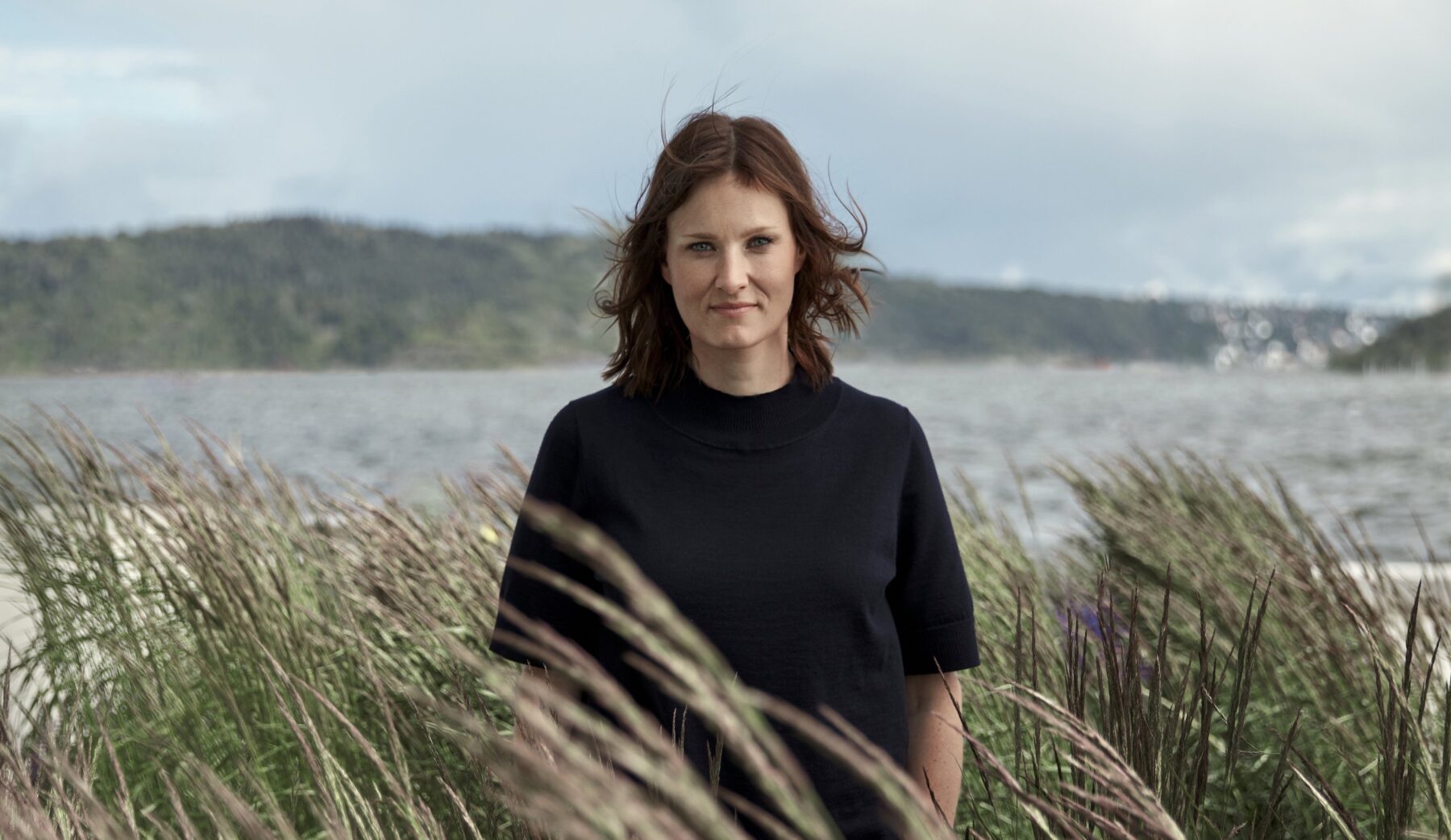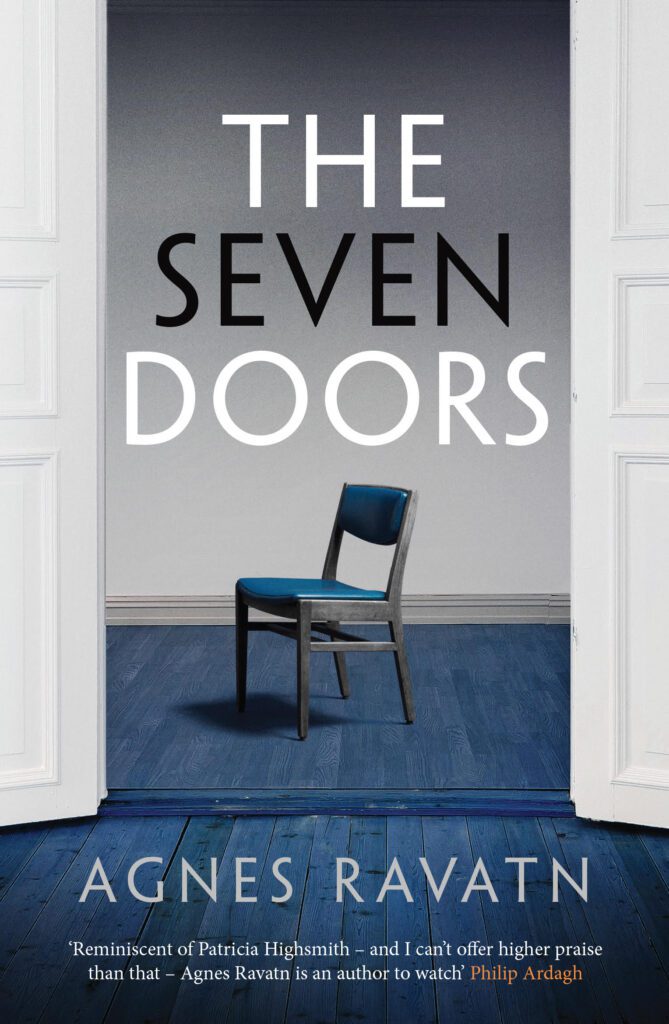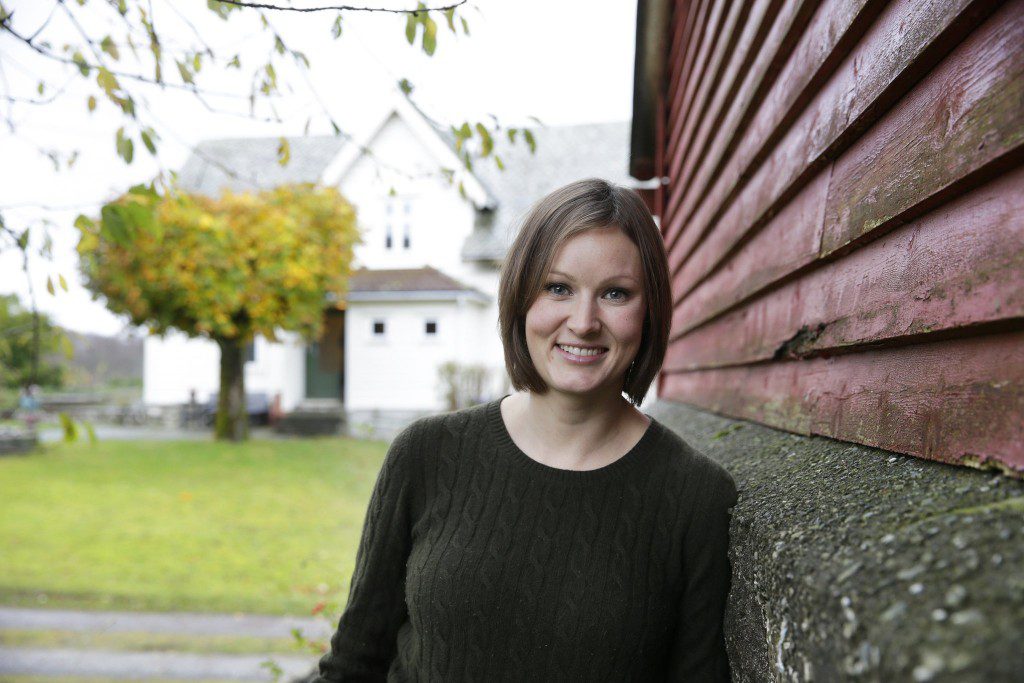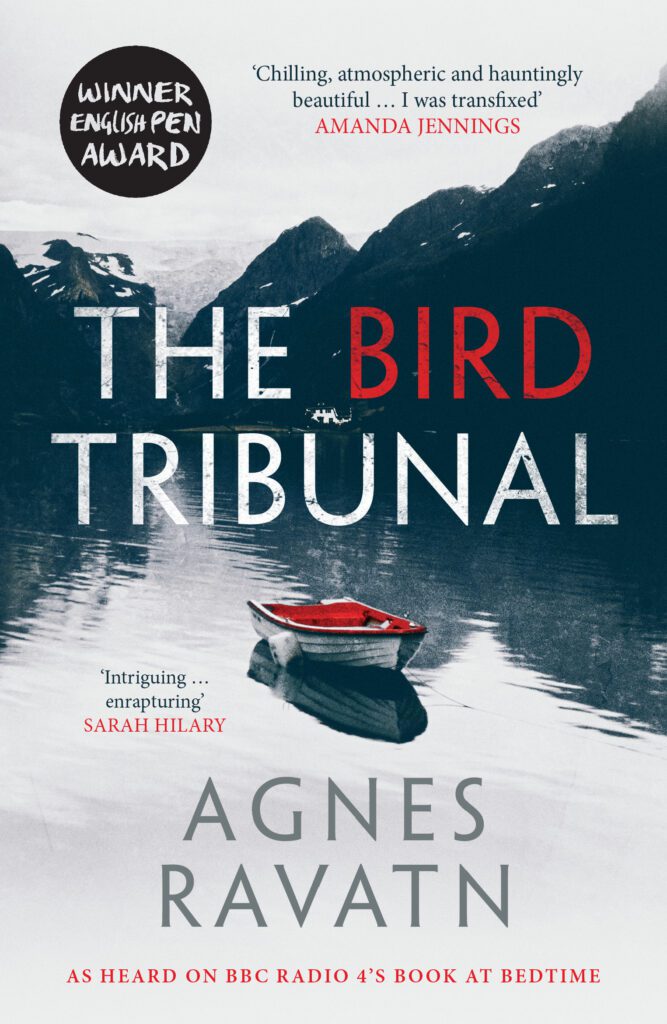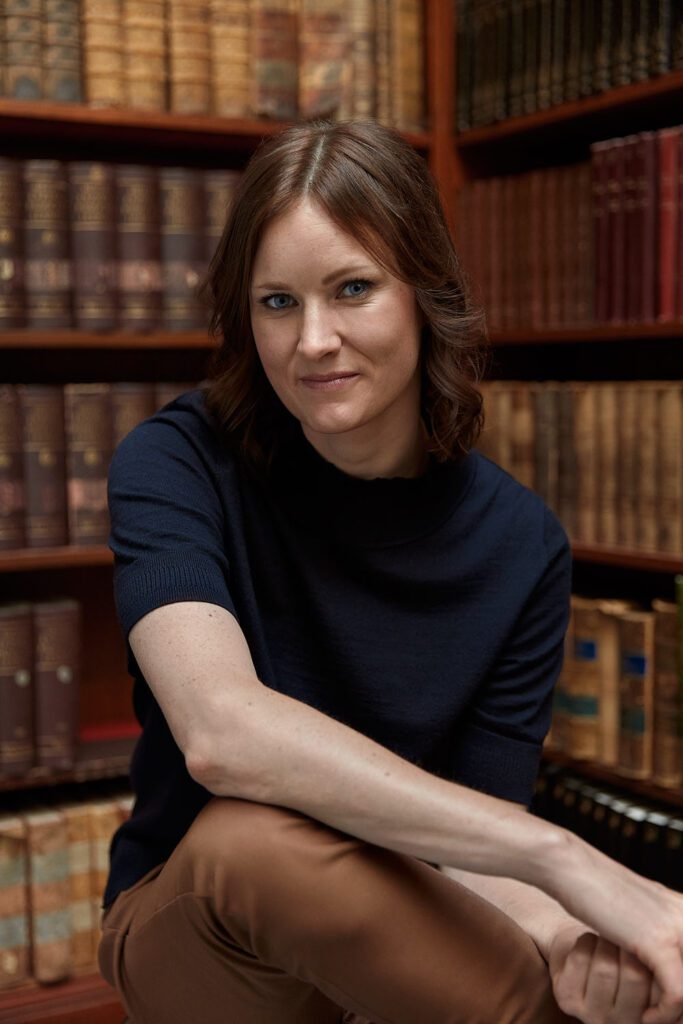In Agnes Ravatn’s new novel The Seven Doors, Nina, a Bergen academic nearing retirement, becomes an unlikely, but effective, detective when a young single mother goes missing.
This mystery is combined with family life and dark comedy in a story that takes unusual detours into Freud’s theory of transference – in which someone redirects their feelings from one person to another – and the sinister meaning of folktales. For Ravatn’s sleuth, the question remains: will a deep reading of events provide clarity or will curiosity kill the cat?
Like Patricia Highsmith and Ruth Rendell, Ravatn focuses on the murky corners of everyday lives and the unknowability of those we love. The Seven Doors is the second of her novels to be published in English by Orenda Books (translated by Rosie Hedger) following the success of her fjord-set chiller The Bird Tribunal which won the English PEN Translation Award and became a Book at Bedtime on BBC Radio 4.
Ahead of the novel’s publication on 17 September, Ravatn talked to Norwegian Arts about finding inspiration in a hospital bed, empathising with bad apples and her childhood crush on Hercule Poirot.
Early in The Seven Doors, Nina insists that literary scholars are perfectly equipped to investigate crimes. Do you share her view?
To some degree, yes. It’s an idea that was inspired by me watching a lot of true crime and thinking that if I worked in the police, or if writers worked in the police, this horrendous investigation would never have happened. Since the police have this fundamental lack of empathy these mistakes happen over and over again, is what I thought. It’s also inspired by the university in Bergen, they had this project where literary scholars started investigating old cases in which it is still a bit open whether they had the real killer. It was partly laughed about.
Are you a frustrated detective?
I’m so happy I’m not an investigator, I would make a terrible detective. I’m terrible at finding things around the house, I keep losing things. And I hate to search and hate even more to search when it’s not even certain that it’s really even in the place where I’m searching. I guess that is what police investigators have to do all the time: search for things that may or may not be there.
Fictional detectives are often cultured – Inspector Morse and his opera, for instance – is this a fantasy?
I have never come across a Morse-like detective, it is an expression of the author’s passion for highbrow art merged with a passion for crime. I should add that I haven’t really met many investigators in my life. And I think it’s safe to say that most people in general don’t go to the opera.
Is there a literary detective that you feel really comes alive?
When I was about eight, I was deeply in love and my love interest was Hercule Poirot. I was so infatuated with his intellect, so he was very real to me. With fictional characters you don’t want to know too much about them, it’s much more effective to write an enigma.
The Seven Doors seems to be a novel about understanding the true nature of those closest to us?
Also do we really want to know? I think a lot of life is about looking the other way. Full honesty? I don’t think many people [really] want that. In Nina’s case knowledge brings responsibility and the risk of having to give up privileges and doing what’s right, versus what’s easy.
In both The Seven Doors and The Bird Tribunal there is a sense of events snowballing. Is there a potential criminal in all of us?
Most of us don’t have to show who we are because of moral luck; we just pass through life avoiding difficult situations. And the ones who we think of as bad, because of the choices they make, often have been unlucky because they have ended up in situations most of us don’t. Most of us are capable of almost anything. I’m really interested in social psychology, where the main idea is that it’s not the apple that is bad, it’s the barrel.
Is it right that you began writing the book when you were ill – how did that affect the story?
The experience of being a patient is what inspired the book. But it turned out as something else to what I had expected. After I was hospitalised for a couple of months I started writing about how it felt to be a patient, which to me was a really interesting character: loss of personality and being treated differently, almost a loss of identity. And I really wanted to write about Freud’s theory of transference which I experienced myself and found extremely comic. I started writing a humorous novel from the patient’s view but I couldn’t make it work.
How does your environment inform your writing?
I wrote The Bird Tribunal in Oslo. I had been living in cities for the last 15 years, Oslo and Bergen mostly, and I suddenly felt this urge to write from a more rural point of view. Now we [Ravatn and her husband] have become a sheep farmers. We moved from Oslo [in 2015] into a really small village of only about 300 people.
I come from a rather small place, approximately 4,000 people, but this is far smaller than that. But when we came here five years ago and I started writing new novels, I was thinking now I actually live in a small place and can really write about life in the village. And that became very difficult; because of the lack of distance perhaps and the fear that people would think that I wrote about them.
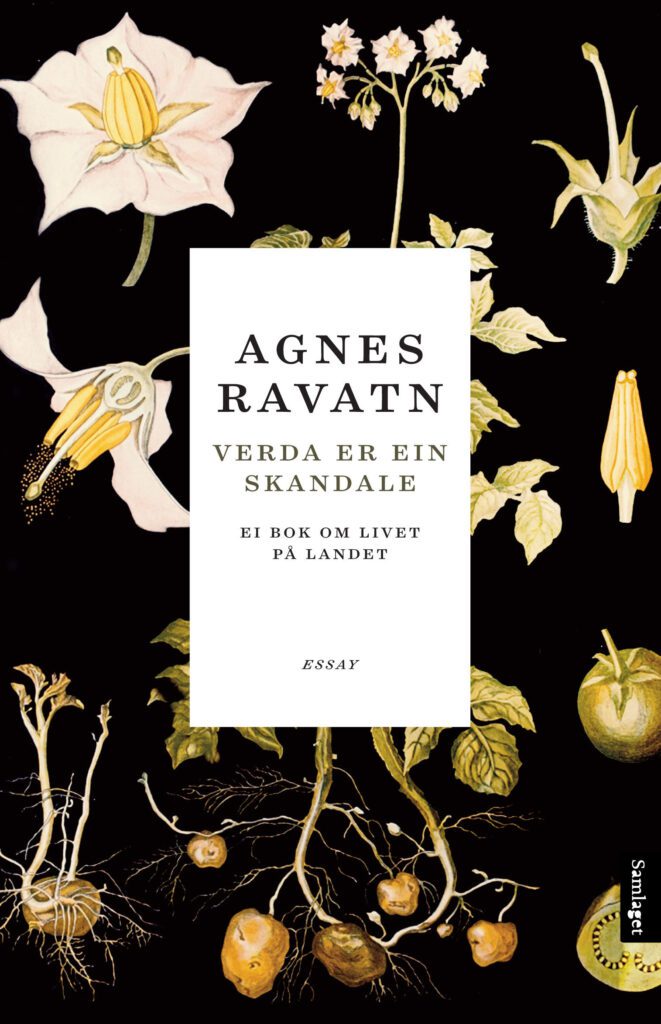
Agnes Ravatn’s collection of essays, The World is a Scandal: A Little Book About Life in the Countryside
How do your novels sit in the tradition of Norwegian fiction?
There is a 17th-century Norwegian poet who said that everyone knows what a field looks like when it’s green. You don’t have to say any more. I’m on that theme. I hate writing descriptions.
What is next for you?
I have never really been interested in writing in the crime genre but that’s how this novel ended up and it was really fun to write. Now I’m starting a new novel and there’s not a crime I’m starting to miss it: isn’t someone supposed to be killed here?
The Seven Doors by Agnes Ravatn is published by Orenda Books on 17 September
There will be a Zoom launch of the novel on 23 September in which Michael J Malone will be interviewing Agnes Ravatn, and her translator, Rosie Hedger

